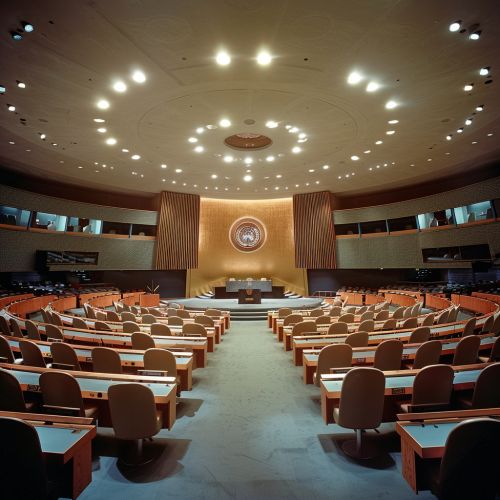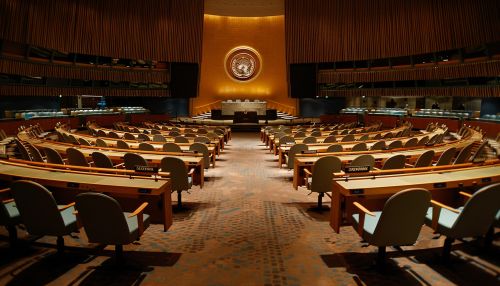United Nations Security Council
Overview
The United Nations Security Council (UNSC) is one of the six main organs of the United Nations (UN), charged with ensuring international peace and security. It is the only UN body with the authority to issue binding resolutions to member states. The Security Council consists of fifteen members, with five permanent members possessing veto power: the United States, the Russian Federation, the United Kingdom, France, and China. The ten non-permanent members are elected for two-year terms by the General Assembly.


History
The United Nations Security Council was established in 1945, following the end of World War II, with the aim of preventing future global conflicts. The structure and powers of the Security Council are defined in the United Nations Charter, which serves as the foundational treaty of the UN.
Structure and Membership
The Security Council is composed of fifteen member states, five of which are permanent members with veto power. The remaining ten non-permanent members are elected by the General Assembly for two-year terms. Each member of the Security Council has one vote. Decisions on substantive matters require at least nine votes, including the concurring votes of all five permanent members. This is known as the "rule of great power unanimity" or the "veto power".
Functions and Powers
The Security Council is tasked with maintaining international peace and security. It can take a range of actions to this end, including imposing sanctions, authorizing the use of force, and establishing peacekeeping missions. The Council also recommends to the General Assembly the appointment of the Secretary-General and the admission of new members to the UN.
Criticism and Reform
The Security Council has been subject to criticism and calls for reform, particularly regarding the veto power of the five permanent members and the representation of developing countries. Proposals for reform have included the enlargement of the Council, changes to its working methods, and the alteration or elimination of the veto power.
